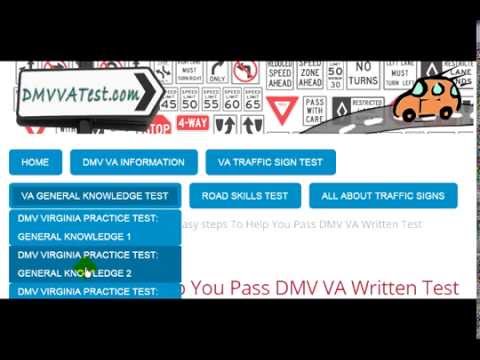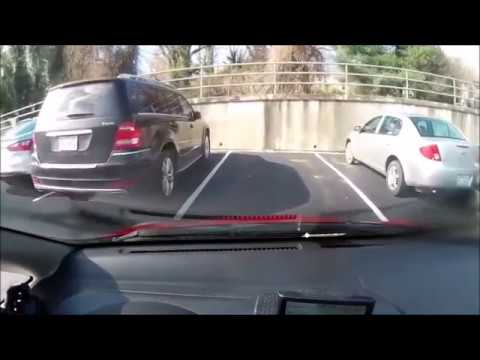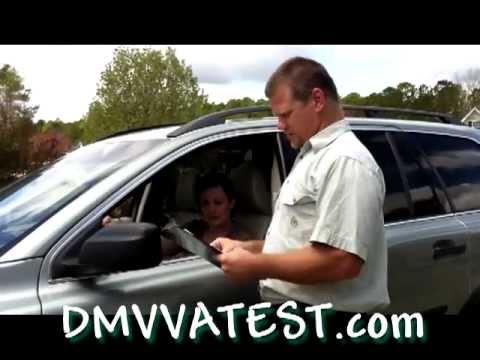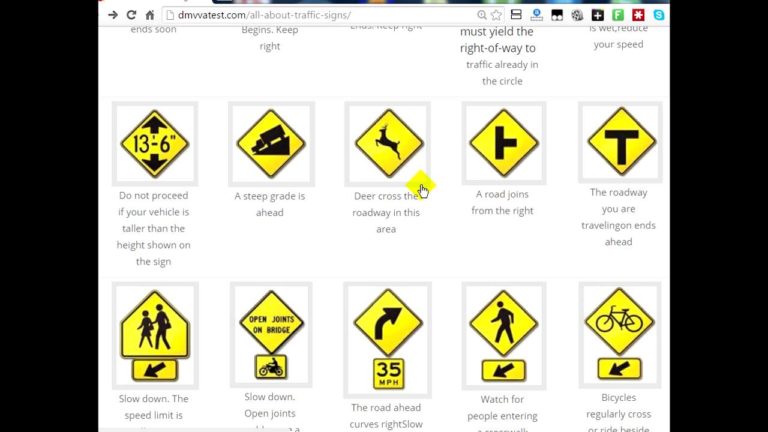DMV Virginia general knowledge
Welcome to DMV Virginia general knowledge! Whether you’re aiming to obtain a driver’s license or simply looking to enhance your understanding of the rules and regulations of the road in the beautiful state of Virginia, you’re in the right place. This comprehensive guide will provide you with all the essential information you need to confidently navigate Virginia’s roadways. From traffic laws and signage to road etiquette and licensing requirements, we’ve got you covered. So sit back, relax, and get ready to embark on a knowledge-filled journey as we delve into the intricacies of DMV Virginia general knowledge!
Free DMV Virgina Traffic Sign Test
Free DMV Virginia General Knowledge Test
Frequently Asked Questions
Q1: What are the minimum age requirements to obtain a driver’s license in Virginia?
The minimum age requirement to obtain a driver’s license in Virginia is 16 years and 3 months for a learner’s permit, and 16 years and 9 months for a driver’s license.
Q2: What are some of the common traffic signs and their meanings in Virginia?
Traffic signs in Virginia include Stop signs, Yield signs, Speed Limit signs, and No Parking signs. Stop signs require drivers to come to a complete stop, Yield signs indicate that drivers must give the right-of-way, Speed Limit signs indicate the maximum speed allowed, and No Parking signs prohibit parking in specific areas.
Q3: What is the maximum speed limit on Virginia highways?
The maximum speed limit on Virginia highways is generally 70 miles per hour (mph). However, it is essential to pay attention to posted speed limit signs as they may vary depending on the specific roadway and conditions.
Q4: How far in advance should you signal before making a turn in Virginia?
It is recommended to signal at least 100 feet before making a turn in Virginia. Signaling in advance allows other drivers to anticipate your actions and helps maintain smooth traffic flow.
Q5: What are the penalties for driving under the influence (DUI) in Virginia?
Driving under the influence (DUI) in Virginia carries penalties that can include fines, license suspension, mandatory alcohol education or treatment programs, and even potential jail time. Penalties may increase for repeat offenses or if there are aggravating factors involved.
Q6: What documents are required to apply for a Virginia driver’s license?
To apply for a Virginia driver’s license, you will need to provide proof of identity, legal presence in the United States, Virginia residency, and Social Security Number (if applicable). You will also need to pass a knowledge test, a vision test, and a road skills test.
Q7: What is the “Move Over” law in Virginia and why is it important?
The “Move Over” law in Virginia requires drivers to change lanes away from emergency vehicles, law enforcement vehicles, and tow trucks with flashing lights stopped on the side of the road. If it is not safe to change lanes, drivers must slow down and proceed with caution.
Q8: How often should you renew your vehicle registration in Virginia?
Vehicle registration in Virginia should be renewed annually. It is essential to renew on time to avoid penalties or fines. You can renew your vehicle registration online, by mail, or in person at a Virginia Department of Motor Vehicles (DMV) office.
Q9: What should you do when approaching a school bus with flashing lights in Virginia?
When approaching a school bus with flashing lights in Virginia, you must come to a complete stop and remain stopped until the bus’s lights stop flashing and the stop sign on the bus is retracted. This applies to both directions of traffic, unless the road is divided by a median.
Q10: What are the consequences of driving without car insurance in Virginia?
Driving without car insurance in Virginia is illegal and can result in penalties such as fines, license suspension, vehicle impoundment, and the requirement to file an SR-22 insurance certificate. It is important to maintain the minimum required insurance coverage to comply with Virginia law and protect yourself and others on the road.
Resource 1: DMV Virginia – http://www.dmvNOW.com
Resource 2: Virginia Driver’s Manual : https://www.dmv.virginia.gov/webdoc/pdf/dmv39.pdf




